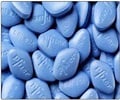Men having erectile dysfunction may be at an increased risk of developing heart attack, sudden cardiac death and strokes independent of other risk factors, finds the study.
- Erectile dysfunction (ED) has shown to be an independent risk factor for heart disease in men, irrespective of other risk factors
- Men with ED twice as likely to suffer from heart attacks, strokes or sudden cardiac death
- ED refers to the inability to achieve or sustain an erection for satisfactory sexual intercourse, affecting nearly 20 percent of men over the study as per statistics
Details of Study
The study was conducted by scientists at the Johns Hopkins School of Medicine in Baltimore, Maryland. Participants in the current study are part of the ongoing Multi-Ethnic Study of Atherosclerosis, which is monitoring more than 6,000 people of diverse ethnic and racial backgrounds in several cities across the United States.- In the study, more than 1,900 men, ranging from ages 60 to 78 years were followed up for over four years.
- During the four-year follow-up, a total of 115 fatal and non-fatal heart attacks, cardiac arrests, fatal and non-fatal strokes and sudden cardiac deaths were encountered.
- Adverse cardiac events were found to occur in a greater proportion of men who reported ED (6.3 percent) compared to men who did not report erectile dysfunction (2.6 percent).
- Even after the investigators adjusted their values to eliminate the potential influence of other contributory risk factors, the risk still remained significantly higher albeit slightly lower than before adjustment
- Patients who reported erectile dysfunction were twice as likely to suffer from heart attacks, cardiac arrests, fatal or non-fatal strokes or sudden cardiac death
"Our results reveal that erectile dysfunction is, in and of itself, a potent predictor of cardiovascular risk," says study‘s senior investigator Michael Blaha, M.D., M.P.H., associate professor of medicine at the Johns Hopkins School of Medicine in Baltimore, Maryland. "Our findings suggest that clinicians should perform further targeted screening in men with erectile dysfunction, regardless of other cardiac risk factors and should consider managing any other risk factors such as high blood pressure or cholesterol that much more aggressively."
Although earlier research in the past few years has shown some evidence of a link between ED and cardiovascular disease the results of this latest study provide what the study team claim is the strongest indication till date that sexual dysfunction might be a harbinger of heightened cardiovascular risk.
Other Known Risk Factors for Heart Disease
Interestingly, erectile dysfunction and heart disease share several common risk factors such as obesity, smoking, alcohol abuse, hypertension, diabetes, metabolic syndrome (a condition characterized by a cluster of features such as elevated blood sugar, hypertension, and excess abdominal fat), increasing age, and low testosterone.Possible Link Between Erectile Dysfunction and Heart Disease
Earlier, atheromatous plaque formation within the arteries of our body was thought to be the reason why erectile dysfunction often preceded heart disease. The belief was that plaque buildup reduces blood flow in the penis, making an erection difficult.Experts now believe that erectile dysfunction preceding heart problems is related more to dysfunction of the inner lining of the blood vessels (endothelium) and smooth muscle. This arterial endothelial dysfunction results in reduced blood supply blood flow to the penis as well as the heart, (with consequent heart disease).
How To Treat Erectile Dysfunction In Heart Disease Patient
Drugs known as PDE5 inhibitors can benefit two-thirds of men with ED. These include Viagra (sildenafil), Cialis (tadalafil) and Levitra (vardenafil). These can be taken with most of the heart medications, except nitrates (GTN) or nicorandil. If you use a spray for angina, there should be at least 12 hours gap between taking a PDE5 inhibitor and using your spray, and for tablets, allow at least 24 hours. Example of a non-drug therapy is a vacuum pump – these may need a bit of practice, but are usually very effective.Takeaway from Study
Men who seek medical advice for ED should ring a warning bell for future heart attacks, sometimes three years before the event. Doctors should therefore, conduct a thorough cardiovascular evaluation. Additionally, the study authors feel that men need to be educated about the increased heart disease risk associated with erectile dysfunction.According to Blaha, "It is incredible how many men avoid the doctor and ignore early signs of cardiovascular disease, but present for the first time with a chief complaint of ED. This is a wonderful opportunity to identify otherwise undetected high-risk cases."
Reference:
- Heart Disease & Erectile Dysfunction - (https://my.clevelandclinic.org/health/diseases/15029-heart-disease--erectile-dysfunction)
Source-Medindia
















